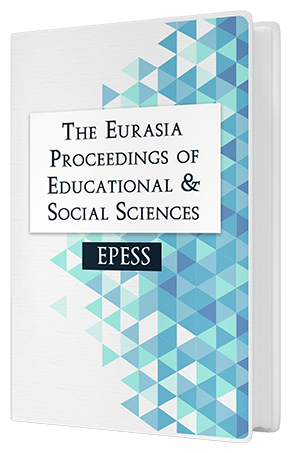Educational and Cultural Policies of the Karakhanid Period
DOI:
https://doi.org/10.55549/epess.1051113Keywords:
Karakhanid Period, Turkish Education History., madrasah,Abstract
The fact that the Karakhanid Turks adopted the Islamic faith brought new features to education. One of these innovations was the opening and expansion of institutions called "madrasah" for the first time in Turkish societies and where education was carried out in a certain plan, program and order. Another important feature of this period is that the Turks have passed from the oral culture they continued before Islam to the written culture and they have entered the process of transition from the nomadic society structure before Islam to the fully settled society structure. In these established madrasas, besides religious education such as the Qur'an, kalam and Hadith, medicine, mathematics, astronomy, philosophy, logic, etc. The teaching of the courses also allowed many scientists and thinkers to be trained in this period. In addition, the support of the Karakhanid rulers to such developments caused cities such as Kashgar, Bukhara, Samarkand, Tashkent, and Balasagun to become science-cultural centers in a short time. In this period, the comments and opinions of important scientists and thinkers about education caused a turning point in terms of Turkish education history. The aim of this study is to determine the educational and cultural policies of the Karakhanid period. The research was carried out with content analysis, one of the qualitative research methods. The data of the research was carried out by scanning the relevant literature that sheds light on the Karakhanid Period. The given analysis was done by creating a category with the coding technique. According to the data obtained; The works of Farabi, Ibni Sina, Yusuf Has Hacip, Kaşgarlı Mahmud, Ahmet Yesevi and Edip Ahmet Yuknevi, who are important figures of the Karakhanid Period, and their contributions to science are explained with examples.Downloads
Published
Issue
Section
License
Copyright (c) 2021 The Eurasia Proceedings of Educational and Social Sciences

This work is licensed under a Creative Commons Attribution-NonCommercial-ShareAlike 4.0 International License.
The articles may be used for research, teaching, and private study purposes. Any substantial or systematic reproduction, redistribution, reselling, loan, sub-licensing, systematic supply, or distribution in any form to anyone is expressly forbidden. Authors alone are responsible for the contents of their articles. The journal owns the copyright of the articles. The publisher shall not be liable for any loss, actions, claims, proceedings, demand, or costs or damages whatsoever or howsoever caused arising directly or indirectly in connection with or arising out of the use of the research material. All authors are requested to disclose any actual or potential conflict of interest including any financial, personal or other relationships with other people or organizations regarding the submitted work.




